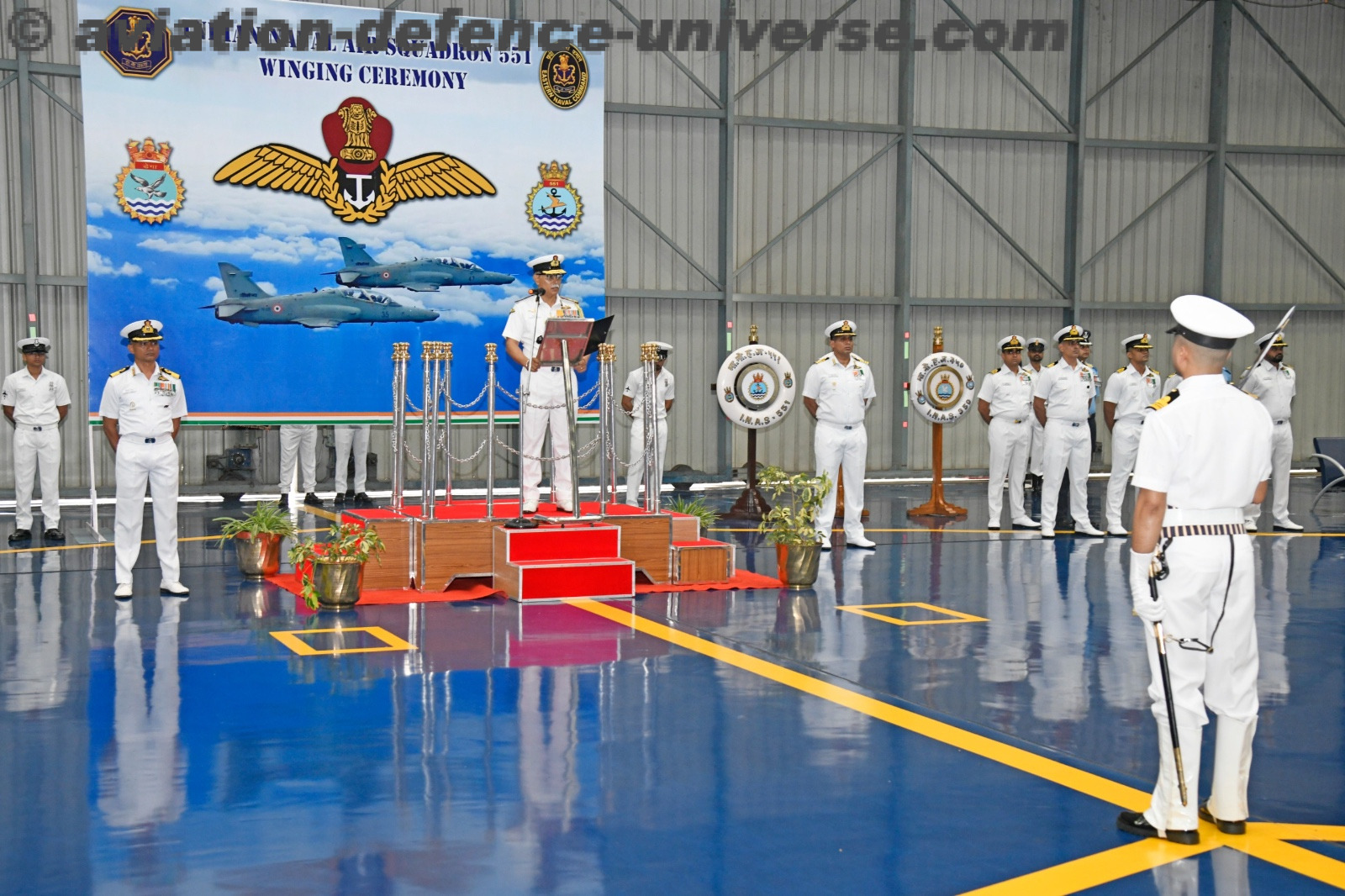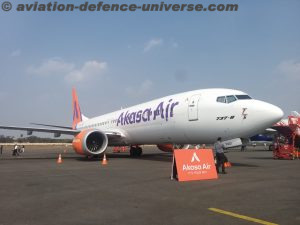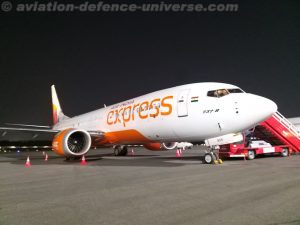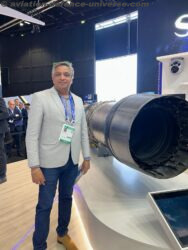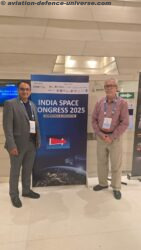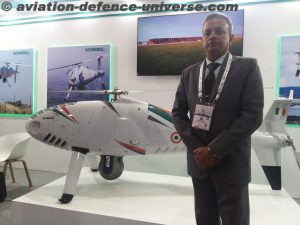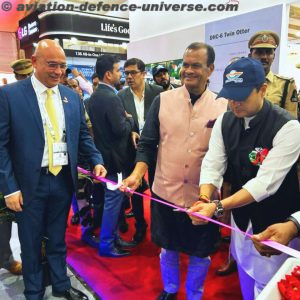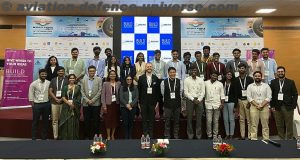- Matches footsteps with Aatmanirbhar Bharat
Begumpet, Hyderabad. 18 January 2024. “Boeing is committed to supporting the growth of India’s civil aviation industry by providing efficient commercial airplanes, world-class services, and innovative solutions aligned with the Government’s Aatmanirbhar Bharat vision. Through local partnerships and advanced technologies, Boeing strives to bring value and modernize the Indian aerospace industry amidst the unprecedented surge in civil aviation traffic,” said Salil Gupte, President Boeing India, in an exclusive interview to Aviation & Defence Universe (ADU) on the eve of Wings India 2024.
ADU. Can you share insights into how Boeing views the evolving Indian aviation sector and its long-term business strategy for enhancing its presence in the Indian market.
SG. As the world’s third-largest civil aviation market, India’s fleet is set to nearly quadruple in size by 2041 compared to 2019. The country is also projected to receive over 90% of South Asia’s airplane deliveries, requiring over 2,400 new aircraft, while its cargo market is set to expand significantly, with the fleet growing from 15 to 80 airplanes by 2042, driving a $135 billion demand for commercial services. Boeing’s 2023 Pilot and Technician Outlook anticipates substantial demand in South Asia for 37,000 pilots and 38,000 maintenance technicians over the next two decades, primarily fuelled by India’s burgeoning aviation sector.
Boeing is committed to supporting the growth of India’s civil aviation industry by providing efficient commercial airplanes, world-class services, and innovative solutions aligned with the Government’s Aatmanirbhar Bharat vision. Through local partnerships and advanced technologies, Boeing strives to bring value and modernize the Indian aerospace industry amidst the unprecedented surge in civil aviation traffic.
ADU. Will Boeing contemplate establishing a Final Assembly Line in India, taking into account the demand and the Indian Government’s encouragement for manufacturing units in the country?
SG. Boeing proudly supports the “Aatmanirbhar Bharat” initiative as a central pillar of our long-term business strategy in India. Boeing is the top foreign aerospace and defence company in India with more than 6,000 employees, of whom 5,500 are engineers and technologists. This represents Boeing’s largest presence outside the U.S., and we continue to grow our operations and invest in new capabilities in India. Boeing spends $1 billion annually on local sourcing and our supply chain footprint extends to over 300 local companies, employing a further 13,000 people. We continually evaluate our airplane production system and rate increases to support the growing global demand for our products. Volumes required for final assembly of commercial airplanes are far greater than that required for defence, and a viable business case would require a large regional market.
ADU. Boeing continues to experience real constraints in the supply chain. How are you mitigating the impact of this constraint on aircraft production?
SG. Supply chain disruption is a global issue across all industries, not just the aerospace industry. But we know how much our customers rely on our products. We know how much their customers, the passengers, and most of the cargo, rely on their products. We also understand how much our military customers rely on our products. And we have a responsibility to them to be transparent in two fundamental ways. Firstly, we are committed to being open and forthright with our supply chain partners regarding our requirements, rates, and other essential factors critical to expediting aircraft delivery to our customers. Secondly, we will ensure a similar level of transparency when communicating with our customers about the supply chain’s progress as it recovers over the next several years, enabling us to manage their expectations appropriately. Maintaining transparency in both directions is a fundamental tenet of our operations and has served us well in the past. We will continue to operate in this manner to navigate these disruptions in the supply chain that are impacting industries worldwide, including ours.
ADU. How does Boeing view the Indian government’s focus on aerospace and defense manufacturing through the ‘Make in India’ initiative? Additionally, how is the company actively contributing to local manufacturing within the aviation sector?
SG. Boeing leads among foreign OEMs, annually sourcing over $1 billion from 300+ supplier partners in India. Notably, over 25% of these suppliers are Micro, Small, and Medium Enterprises (MSMEs) integral to our global supply chain, exporting critical components worldwide. Our strong network of Indian suppliers, particularly in the aerospace sector, has made us a leader in exports and underscores our commitment to fostering growth and leadership in Indian aerospace and defence through partnerships, including with start-ups. Some highlights are:
- Tata Advanced Systems Limited (TASL): manufactures complex floor beams for the 787-8, 9 and 10 Dreamliners. Boeing has awarded a follow-on contract to TASL, which has already delivered more than 33,000 beams to date.
- Mahindra Aerostructures Pvt Ltd (MASPL): awarded a contract for manufacturing and supply of the Boeing 737 inlet outer barrel components and subassemblies at the state-of-the-art MASPL facility in Narsapura.
- Wipro Infrastructure Engineering: manufactured and delivered strut assemblies for 737 MAX and Next-Generation 737 airplane programs.
- Bharat Forge: manufactures a range of titanium-forged parts such as flap-track forgings for the Next-Generation 737 and forgings for the 737 MAX and the 777X.
- Hyderabad-based Cyient: Supports critical design-engineering projects for Boeing airplanes, including 787 design and stress support.
- Motherson Sumi Systems Limited (MSSL): awarded a contract to manufacture and supply aftermarket moulded polymer parts for commercial airplane interiors.
- SASMOS HET Technologies: has signed a contract to manufacture panels, shelf assemblies and electrical wiring systems for Boeing 767 and 767-2C airplanes.
Our joint venture with Tata Advanced Systems Ltd. (TASL), Tata Boeing Aerospace Limited (TBAL) in Hyderabad, is a state-of-the-art facility that showcases our commitment to Make in India and Aatmanirbhar Bharat. TBAL manufactures aero-structures for Boeing’s AH-64 Apache helicopter, including fuselages, secondary structures, and vertical spar boxes for customers worldwide, including the U.S. Army and for the six on order with the Indian Army. Additionally, last year TBAL began shipping the vertical fin structures for the Boeing 737 airplane.
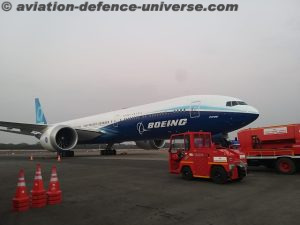 ADU. Could you provide additional insights into your involvement at Wings India this year?
ADU. Could you provide additional insights into your involvement at Wings India this year?
SG. As a strategic partner of Wings 2024, through its exhibit, Boeing will underscore its commitment to fostering an Aatmanirbhar aerospace ecosystem in India. Boeing will engage in dialogue with customers and industry partners on the growth trajectory of India’s aviation sector, local manufacturing, harnessing engineering and research expertise, strengthening local alliances, and showcasing cutting-edge technologies, services, top-tier sustenance, and training capabilities.
As told to Sangeeta Saxena





























